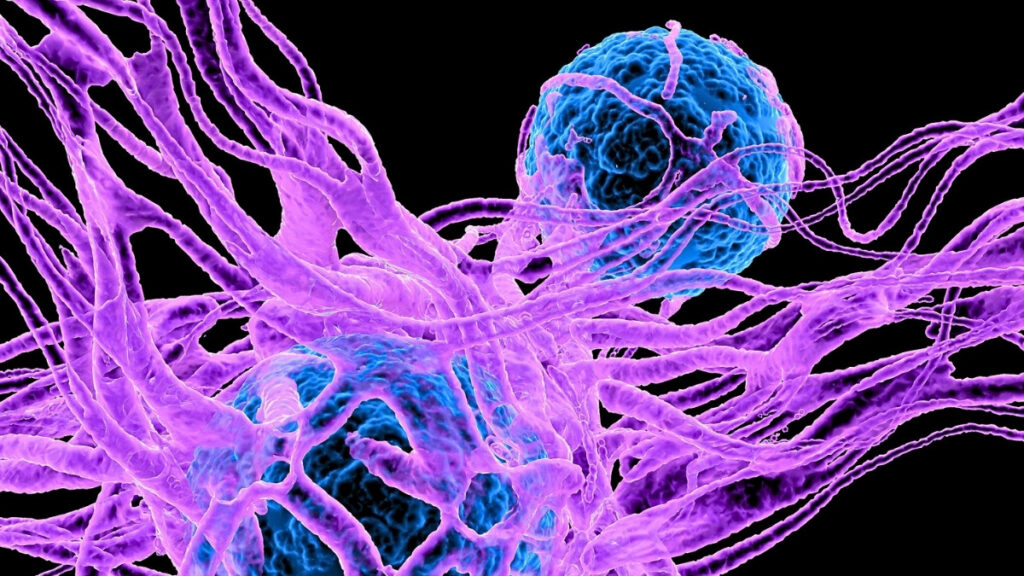
Recent research has revealed that serotonin, often referred to as the “happiness chemical” due to its role in mood regulation, may have an unexpected influence on cancer development. This discovery highlights the molecule’s function beyond the brain, with significant implications for understanding cancer biology and potential therapies.
Almost 95% of the body’s serotonin is produced in the gut, where it enters the bloodstream and affects various organs, including the liver, pancreas, and immune cells. While serotonin is best known for its impact on mood, it also plays crucial roles in regulating blood sugar levels, body temperature, and immune responses. These diverse functions extend its influence throughout the body and into cancer development.
In 2019, researchers at the Icahn School of Medicine at Mount Sinai in New York discovered that serotonin can directly enter cells and bind to DNA. This interaction allows it to act as a molecular “switch,” turning specific genes on or off. Studies conducted since then have indicated that serotonin may activate genes associated with cancer growth in various types of cancer, including brain, liver, and pancreatic cancers.
Exploring the Mechanism Behind Serotonin and Cancer
Colleagues at the University of Limerick in Ireland, including researcher Jeremiah Stanley, are investigating how serotonin interacts with DNA to further understand its impact on cancer. Identifying the precise sites where serotonin binds to cancer-related genes could inform the development of “epigenetic” therapies. These therapies aim to reprogram cancer cells by adjusting gene activity without altering DNA sequences, potentially allowing doctors to target harmful genes while activating beneficial ones.
Existing cancer treatments, such as surgery, chemotherapy, and radiotherapy, can be aggressive and carry significant side effects. Epigenetic therapies could offer a more tailored approach, attacking cancer cells with greater precision. Current research is also examining how serotonin produced in the gut reaches cancer cells, which may lead to methods for managing serotonin levels in patients through dietary changes or medications.
Selective serotonin reuptake inhibitors (SSRIs), commonly used antidepressants, block serotonin transport channels, limiting the molecule’s entry into cancer cells. While SSRIs raise serotonin levels in the body, they prevent it from reaching DNA and promoting cancer. Their potential benefits against certain cancers are being explored, although larger clinical trials are necessary to confirm these initial findings.
Future Directions for Serotonin Research
Research efforts aim to clarify how serotonin interacts with cancer-related genes to identify the most effective targets for treatment. Developing accurate delivery systems for epigenetic drugs will be essential to ensure they reach their intended action sites. Promising results from cell-based studies must be corroborated in ethically designed animal studies and human clinical trials before any significant conclusions can be drawn.
If successful, therapies targeting serotonin’s activity in cancer cells could lead to less aggressive tumors, making them easier to remove surgically and reducing the risk of recurrence. A comprehensive understanding of serotonin’s roles across various physiological processes could pave the way for more effective and precise cancer therapies in the future.







